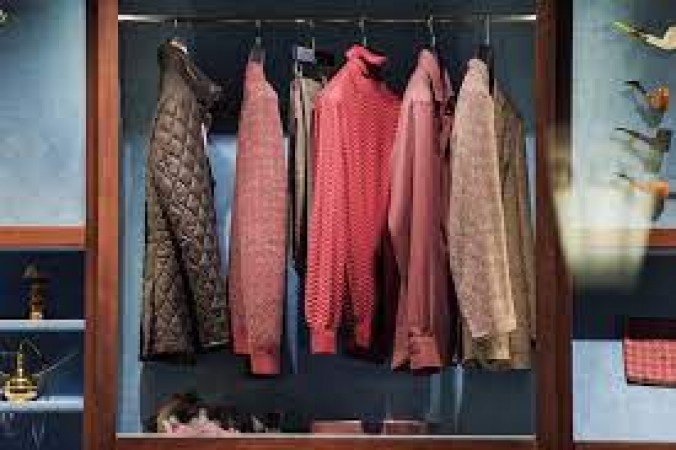
In today's world, the fashion industry is undergoing a significant transformation towards sustainability. With increasing awareness about the environmental and social impact of clothing production, more and more consumers are seeking out sustainable fashion options. This article aims to provide an in-depth understanding of sustainable fashion, its benefits, and how individuals can embrace eco-friendly clothing choices.
What is Sustainable Fashion?: Sustainable fashion, also known as eco-fashion or ethical fashion, refers to clothing and accessories that are produced and consumed in a way that minimizes the negative impact on the environment and respects social responsibility. It involves considering the entire lifecycle of a garment, from the sourcing of raw materials to its disposal, with the aim of reducing waste, conserving resources, and promoting fair labor practices.
The Environmental Impact of Fast Fashion: Fast fashion, characterized by inexpensive and quickly produced clothing, has had detrimental effects on the environment. The fashion industry is one of the largest contributors to pollution, with extensive water usage, chemical pollution, and carbon emissions from transportation. Moreover, the disposable nature of fast fashion has led to overflowing landfills and excessive textile waste.
Benefits of Sustainable Fashion: Sustainable fashion offers numerous benefits that go beyond environmental concerns. By supporting ethical and eco-friendly brands, consumers can contribute to fair wages and safe working conditions for garment workers. Additionally, sustainable fashion promotes creativity, innovation, and unique designs that break away from the mass-produced, generic styles of fast fashion.
Ethical Production Practices: Ethical production practices are a fundamental aspect of sustainable fashion. This involves ensuring fair wages, safe working conditions, and the absence of child labor in the production process. Brands that prioritize ethics often engage in transparent supply chains and collaborate with artisans and small-scale producers, fostering a sense of community and empowerment.
Sustainable Materials and Textiles: Sustainable fashion relies on the use of environmentally friendly materials and textiles. Organic cotton, hemp, linen, and bamboo are popular choices due to their reduced water consumption and minimal pesticide use. Additionally, innovative materials such as recycled polyester, Tencel, and Piatex (made from pineapple fibers) are gaining popularity for their low environmental impact.
Slow Fashion: A Counter to Fast Fashion: Slow fashion encourages a mindful and conscious approach to clothing consumption. It promotes quality over quantity and encourages individuals to invest in well-made, timeless pieces that can be worn for years. By focusing on durability, slow fashion aims to reduce the overall demand for new clothing and minimize waste.
Capsule Wardrobe: A Sustainable Styling Approach: A capsule wardrobe is a curated collection of essential and versatile clothing items that can be mixed and matched to create various outfits. This sustainable styling approach promotes conscious buying decisions, reduces clutter, and encourages individuals to make the most of their existing wardrobe. It emphasizes quality, versatility, and longevity.
Upcycling and Recycling: Giving New Life to Old Clothes: Upcycling and recycling are creative ways to extend the lifespan of clothing items. Upcycling involves transforming old garments into new, unique pieces, while recycling focuses on breaking down textiles to create new fabrics. Both practices reduce waste and contribute to a circular economy by minimizing the need for raw materials.
Thrifting: A Sustainable Shopping Alternative: Thrifting, or shopping secondhand, is an excellent way to embrace sustainable fashion. Thrift stores, consignment shops, and online platforms offer a wide range of pre-owned clothing at affordable prices. By choosing to buy second-hand, consumers reduce the demand for new production and support a more circular and sustainable fashion system.
Sustainable Fashion Brands and Designers: Many fashion brands and designers are dedicated to sustainability and offer eco-friendly and ethical clothing options. From high-end luxury brands to independent labels, these companies prioritize transparency, responsible sourcing, and conscious manufacturing practices. By supporting these brands, consumers can align their fashion choices with their values.
Embracing Sustainable Fashion on a Budget: Sustainable fashion doesn't have to be expensive. There are various ways to embrace eco-friendly clothing on a budget. Thrift shopping, swapping clothes with friends, participating in clothing swaps or rental services, and learning basic sewing skills to mend and alter garments are all cost-effective ways to support sustainable fashion.
Taking Care of Your Clothes for Longevity: Caring for your clothes is essential for their longevity and sustainability. Proper washing, drying, and storing techniques can help extend the lifespan of garments, reducing the need for frequent replacements. Using eco-friendly laundry detergents, air-drying clothes, and repairing minor damages promptly are simple steps that make a significant impact.
Sustainable Fashion for Children: Sustainable fashion is not limited to adults. Many brands offer eco-friendly and ethical clothing options for children. From organic cotton baby onesies to responsibly produced children's clothing, parents can make conscious choices that align with their values while ensuring the well-being of their little ones and the planet.
Sustainable Fashion Events and Campaigns: Sustainable fashion events and campaigns play a crucial role in raising awareness and driving change in the industry. Fashion weeks, conferences, workshops, and social media campaigns aim to educate consumers, inspire sustainable fashion choices, and encourage brands to adopt more ethical and eco-friendly practices.
The Future of Sustainable Fashion: The future of sustainable fashion looks promising. As more consumers demand transparency, ethical production, and eco-friendly options, the industry continues to evolve. Advancements in technology, such as 3D printing and fabric innovation, offer exciting possibilities for sustainable fashion. By embracing conscious choices, we can shape a more sustainable and equitable future.
Conclusion: Sustainable fashion is a vital movement that seeks to address the environmental and social challenges associated with the fashion industry. By opting for eco-friendly and ethical clothing, individuals can make a positive impact and contribute to a more sustainable future. Embracing sustainable fashion is not only about being stylish but also about making choices that respect people, the planet, and future generations.
Sawan 2023: Decorate your feet in Sawan with these latest designs
Sweat is not colored, yet why do yellow stains appear on clothes?
Louis Vuitton to make new Collection out representing the Travel